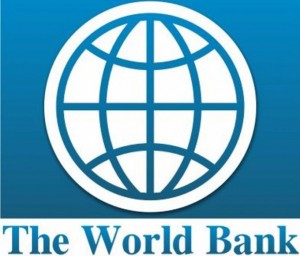World Bank approves $300m loan for Ghana’s economy
 Ghana’s rundown and debt-ridden economy has received a breather from the World Bank. Economic analysts say the ‘economy has been stripped to the bones,’ compelling a government that publicly vowed never to return to the Bretton Woods institutions, particularly the International Monetary Fund (IMF) doing so with cup in hand.
Ghana’s rundown and debt-ridden economy has received a breather from the World Bank. Economic analysts say the ‘economy has been stripped to the bones,’ compelling a government that publicly vowed never to return to the Bretton Woods institutions, particularly the International Monetary Fund (IMF) doing so with cup in hand.
The World Bank today approved a $300 million Development Policy Operation for the country.
In a press statement copied to Ghana Business News, the Bank said: “The First Resilient Recovery Development Policy Financing is a critical contribution by the Bank’s International Development Association (IDA) to help Ghana’s economic recovery and support the country’s resilient and inclusive growth.”
According to the Bank, the loan approval follows last week’s agreement in principle by the Official Creditors’ Committee under the G20 Common Framework on the key parameters of the proposed debt restructuring for Ghana.
It stated that the agreement, which is consistent with the Joint World Bank-International Monetary Fund Debt Sustainability Framework, represents a critical milestone toward restoring debt sustainability.
Commenting on the loan facility, Ousmane Diagana, the World Bank Vice President for Western and Central Africa said: “Restoring fiscal and debt sustainability, bolstering growth prospects, curbing inflation, and protecting the most vulnerable – measures supported by this financing – are urgent priorities for Ghana. They are also essential steps to allow the country to attract more foreign investment, revitalize its domestic private sector, build resilience against climate change, and improve the quality of life of its people.”
The Bank further stated that the Resilient Recovery Development Policy Operation is the first in a series of three operations of $300 million each and part of a broad World Bank engagement for crisis response and resilience in Ghana. Its objectives are to: restore fiscal sustainability; support financial sector stability and private sector development; improve energy sector financial discipline; and strengthen social and climate resilience.
Ken Ofori-Atta, the Minister of Finance said the government of Ghana remains committed to restoring macroeconomic stability and to the implementation of lasting reforms to set the economy on a path of strong long-term sustainable growth and transformation.
“The disbursement of this $300 million Development Policy Financing, the first in a series of three, will play a vital role in easing Ghana’s fiscal constraints, sustaining the momentum of economic recovery while protecting the poor and vulnerable,” he said.
The Bank indicated that specific reforms supported by this financing series include strengthening domestic revenue mobilization, controlling expenditures, safeguarding financial sector stability, removing barriers to private investment, setting the energy sector on a sounder financial and operational footing, strengthening the country’s social protection system, and mainstreaming climate adaptation and mitigation across policies.
In its 2022 Annual Public Debt Report, the Ministry of Finance noted that due to high inflation, interest rates, and portfolio reversals, issuances of government securities remained under pressure, highlighted by weak demand, and various undersubscriptions during the year.
It said the provisional stock of public debt increased from over GH¢351 billion (over $58 billion) in 2021 to more than GH¢435 billion (over $52 billion) as at end-December 2022, representing an increase of 23.7 percent.
“The depreciation of the cedi alone accounted for GH¢67 billion (equivalent to 80.5%) of the increase in the debt stock at end-December 2022,” it said.
The Ministry noted that seven rating actions were conducted in 2022 by three global rating agencies – Fitch, S&P, and Moody’s.
“All three rating agencies downgraded Ghana’s long-term Issuer and Senior Unsecured bond ratings. The downgrades reflected a deterioration in the country’s creditworthiness. The ratings coupled with tightening financing conditions led to restricted access to the International Capital Market,” it added.
By Emmanuel K Dogbevi
Copyright ©2024 by NewsBridge Africa
All rights reserved. This article or any portion thereof may not be reproduced or used in any manner whatsoever without the express written permission of the publisher except for the use of brief quotations in reviews.
